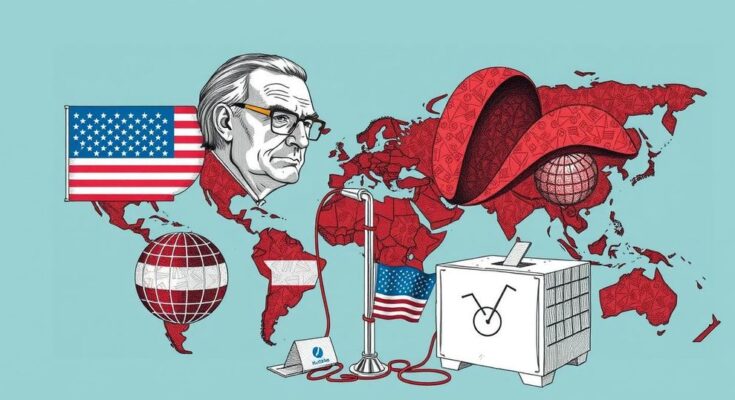In 2024, approximately 3.7 billion eligible voters participated in landmark elections across more than 70 countries, amidst rising concerns of misinformation and foreign interference. Significant events included the use of AI by political figures, European election security efforts, and foreign funding allegations in Moldova. The cancellation of Romania’s election results highlighted the ongoing challenges faced by democracies in maintaining electoral integrity against disinformation.
The year 2024 witnessed significant electoral participation globally, with approximately 3.7 billion citizens across more than 70 nations called to cast their votes in various high-stakes elections. This period was marked by a cautious approach to electoral integrity as democracies confronted challenges stemming from misinformation, foreign interference, and technological advancements like generative AI. Despite some reports downplaying the impact of such manipulations, notable incidents raised concerns over the authenticity of electoral outcomes.
Notably, the elections in the United States, India, Indonesia, and several European nations underscored the pervasive influence of disinformation. Meta Platforms, Inc. reported that while fears surrounding AI’s influence were prevalent, the actual impact on election outcomes remained relatively modest according to their assessments. However, the cancellation of a presidential election round in Romania due to confirmed foreign interference spotlighted the potential dangers of misinformation.
In Pakistan, imprisoned former Prime Minister Imran Khan employed AI technology to create a virtual proclamation of electoral victory, which stirred considerable controversy given his legal disqualification. The European Union fortified its defenses against disinformation leading up to its elections, where pro-Kremlin forces attempted to sabotage the voting process.
Moldova’s delicate referendum on EU accession underscored the ongoing tussle between Western integration and Russian alignment, with reports of systemic foreign funding aimed at manipulating public opinion. Furthermore, the US elections faced their share of disinformation as candidates contended against online smear campaigns and bomb threats that disrupted polling places.
The remarkable win of the ultranationalist Calin Georgescu in Romania, facilitated by a TikTok campaign, was later annulled following revelations of orchestrated interference, prompting inquiries into social media’s role in electoral integrity. The year demonstrated a complex landscape where misinformation, technology, and international influence intertwined, underscoring the necessity for robust measures to safeguard democratic elections.
The landscape of global elections in 2024 was significantly shaped by the intersection of misinformation, social media technologies, and foreign interference, highlighting vulnerabilities within democratic processes. With billions of voters involved, ranging from democratic regimes to authoritarian states, the potential to manipulate election results through disinformation campaigns became evident. Observers noted the critical need for democracies to address these challenges to maintain electoral integrity, particularly as technology continues to evolve.
The events of 2024 reaffirmed the critical importance of vigilance in protecting electoral integrity against a backdrop of misinformation and foreign influence. Although some elections appeared resilient to external manipulation, incidents like the annulment of Romania’s election results signify that the risks remain profound. As democracies continue to adapt to technological innovations and hybrid threats, a proactive stance towards counteracting misinformation and ensuring transparent electoral processes will be essential for the preservation of democratic values.
Original Source: www.euronews.com




